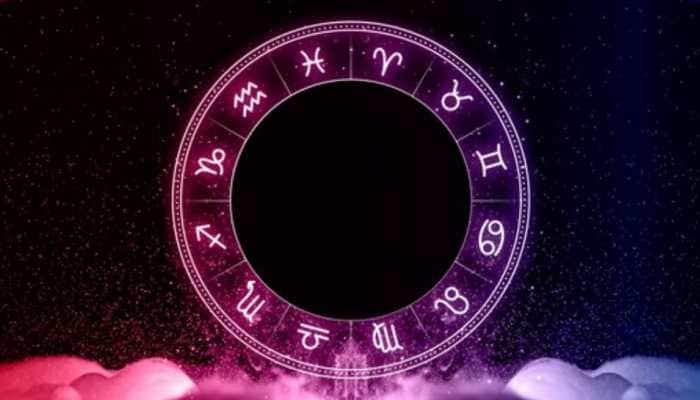Crime and Politics: A lethal mix
Power has a corrupting influence and as per Lord Acton, “Absolute power corrupts absolutely.”
Trending Photos
)
 Ritam Banati
Power has a corrupting influence and as per Lord Acton, “Absolute power corrupts absolutely.”
It is so easy for mankind as always to blame an external entity for the evils that ail it. This is a very easy explanation for us that because politics is a dirty game therefore it leads to spoiling the good fish around as well. Therefore bribery, treachery, misuse of power etc become part of the game. Enter criminalization of politics!
They also say that it is very rare that good people enter politics. The answer given is that “politics is the last refuge of a scoundrel.” Whether or not this is true can be subjected to an inconclusive debate.
However, what is unambiguously true is that politics is a scoundrel’s refuge in a country like India where money and muscle power have come to pave the path for an easy entry. And only criminals are known to make proper use of these two. But when did these two weapons become useful tools to enter the profession? Enter politicization of criminals!
Clean politics has its roots in a clean election. An election is the medium via which electors get elected. In India, fighting an election is very expensive. An election campaign reportedly runs into lakhs. But actual figures could be in crores.
Prior to 1974, the electoral funding process used to be transparent. It was only after late Prime Minister Indira Gandhi’s government amended Section 77 of Representation of Peoples Act following the disqualification of a Congress member. This amendment separated the expenses incurred in fighting elections for the parties and their candidates. This helped criminals who were interested in fighting elections and ensure their victory as well due to the politically winning combination of money and muscle power.Rest, as they say, is history.
The Election Commission in 1997 had observed that Representation of Peoples Act, 1951 stipulated that the person who has been convicted by a trial court is disqualified from contesting polls irrespective of whether he was out on bail or not during the appeal period. But the same does not apply to the sitting members since the easy argument that goes in their favour is the lodging of false cases against them by the opposition party members.
Keeping that aside, it is clear that chargesheeted people form a part of the polity that rules us. Our laws state that if a criminal is convicted for over two years then his disqualification stands, but if conviction is for less than a couple of years then he is allowed to contest polls. It was on this ground that the Supreme Court prohibited Bollywood star Sanjay Dutt from contesting the Lok Sabha polls this year. Dutt was sentenced to six years in 2007 for illegal possession of firearms acquired from terrorists responsible for serial blasts in Mumbai in 1993.
Out of the ones who have not been convicted are Congress’ Vitthalbhai Hansrajbhai Radadiya and JD (U)’s Jagdish Sharma. The former is charged in the maximum number of criminal cases -16 - including culpable homicide, voluntarily causing hurt by dangerous weapons or means and dacoity. He also faces 5 serious charges against him. The latter faces the maximum number of serious charges- 17 including murder. These two are MPs in the Lok Sabha of 2009.
What every concerned citizen must be aware of is that there has been an upswing of 30.9% in the number of MPs with serious criminal records. In 2004, it was 55 whereas this year it has risen by 18 and is 73.
Tracing the recent past, one can find that in 1996, 39 MPs faced criminal charges and out of these four of them held ministerial berths. Then in 2004, the number rose to 128 and in 2009 it has increased even more to 150.
This lends credence to ancient Greek citizen Aesop’s belief, "We hang the petty thieves and appoint the great ones to public office.’
The two major national parties of India- the BJP and the Congress top the list of MPs with criminal charges- 43 and 41 respectively.
There maybe more people in the political realm than reported with some or the other charge against them. For example, AIADMK chief J Jayalalithaa, who has served as Tamil Nadu’s Chief Minister was convicted and sentenced to three years by a trial court. But the appellate court while staying the sentence left some ambiguous issues unresolved.
The fact that many criminal-politicians of Bihar have lost the race this time is no saving grace.
The Election Commission of India had in 1997 clarified that a candidate stands disqualified from the day he’s convicted by a trial court. This is as per Section 8 of RPA, 1951. And this is not from the date of bail, but the actual date of conviction. On the other hand our laws exempt sitting Members of Parliament and State legislatures from such disqualification under Section 8(4). The argument running in their favour is that they may then become an easy prey to their rivals in the bid for power.
But on the flip side, this may also act like a cushion to the ones who are dreaded criminals holding power and who have not been convicted yet. Giving political power to criminals is tantamount to arming them with an invincible weapon in front of the public. It acts as an informal mechanism to legalise crime in the country and also glorify alleged criminals. Look at Mayawati, who is embroiled in corruption cases running in crores, who has had her statues built and is the Chief Minister of one of the most politically crucial states of the country.
However what is really worrisome is giving decisive power to ‘murderers’ and ‘rapists’. In one of the ministries, alleged rapist Taslimuddin was given a berth. Besides them we have JMM chief Shibu Soren who was implicated in a murder case. There can be many such instances cited.
What is more bothersome is the fact that in India there are a greater number of criminals, who have not been convicted than the ones who have been. Therefore, the possibility of the figures going even higher always exists.
The lethal combination of crime and politics spells doom for a nation in the long run. In India a spurt of the politicization of criminals is a trend that one must watch out for.
Ritam Banati
Power has a corrupting influence and as per Lord Acton, “Absolute power corrupts absolutely.”
It is so easy for mankind as always to blame an external entity for the evils that ail it. This is a very easy explanation for us that because politics is a dirty game therefore it leads to spoiling the good fish around as well. Therefore bribery, treachery, misuse of power etc become part of the game. Enter criminalization of politics!
They also say that it is very rare that good people enter politics. The answer given is that “politics is the last refuge of a scoundrel.” Whether or not this is true can be subjected to an inconclusive debate.
However, what is unambiguously true is that politics is a scoundrel’s refuge in a country like India where money and muscle power have come to pave the path for an easy entry. And only criminals are known to make proper use of these two. But when did these two weapons become useful tools to enter the profession? Enter politicization of criminals!
Clean politics has its roots in a clean election. An election is the medium via which electors get elected. In India, fighting an election is very expensive. An election campaign reportedly runs into lakhs. But actual figures could be in crores.
Prior to 1974, the electoral funding process used to be transparent. It was only after late Prime Minister Indira Gandhi’s government amended Section 77 of Representation of Peoples Act following the disqualification of a Congress member. This amendment separated the expenses incurred in fighting elections for the parties and their candidates. This helped criminals who were interested in fighting elections and ensure their victory as well due to the politically winning combination of money and muscle power.Rest, as they say, is history.
The Election Commission in 1997 had observed that Representation of Peoples Act, 1951 stipulated that the person who has been convicted by a trial court is disqualified from contesting polls irrespective of whether he was out on bail or not during the appeal period. But the same does not apply to the sitting members since the easy argument that goes in their favour is the lodging of false cases against them by the opposition party members.
Keeping that aside, it is clear that chargesheeted people form a part of the polity that rules us. Our laws state that if a criminal is convicted for over two years then his disqualification stands, but if conviction is for less than a couple of years then he is allowed to contest polls. It was on this ground that the Supreme Court prohibited Bollywood star Sanjay Dutt from contesting the Lok Sabha polls this year. Dutt was sentenced to six years in 2007 for illegal possession of firearms acquired from terrorists responsible for serial blasts in Mumbai in 1993.
Out of the ones who have not been convicted are Congress’ Vitthalbhai Hansrajbhai Radadiya and JD (U)’s Jagdish Sharma. The former is charged in the maximum number of criminal cases -16 - including culpable homicide, voluntarily causing hurt by dangerous weapons or means and dacoity. He also faces 5 serious charges against him. The latter faces the maximum number of serious charges- 17 including murder. These two are MPs in the Lok Sabha of 2009.
What every concerned citizen must be aware of is that there has been an upswing of 30.9% in the number of MPs with serious criminal records. In 2004, it was 55 whereas this year it has risen by 18 and is 73.
Tracing the recent past, one can find that in 1996, 39 MPs faced criminal charges and out of these four of them held ministerial berths. Then in 2004, the number rose to 128 and in 2009 it has increased even more to 150.
This lends credence to ancient Greek citizen Aesop’s belief, "We hang the petty thieves and appoint the great ones to public office.’
The two major national parties of India- the BJP and the Congress top the list of MPs with criminal charges- 43 and 41 respectively.
There maybe more people in the political realm than reported with some or the other charge against them. For example, AIADMK chief J Jayalalithaa, who has served as Tamil Nadu’s Chief Minister was convicted and sentenced to three years by a trial court. But the appellate court while staying the sentence left some ambiguous issues unresolved.
The fact that many criminal-politicians of Bihar have lost the race this time is no saving grace.
The Election Commission of India had in 1997 clarified that a candidate stands disqualified from the day he’s convicted by a trial court. This is as per Section 8 of RPA, 1951. And this is not from the date of bail, but the actual date of conviction. On the other hand our laws exempt sitting Members of Parliament and State legislatures from such disqualification under Section 8(4). The argument running in their favour is that they may then become an easy prey to their rivals in the bid for power.
But on the flip side, this may also act like a cushion to the ones who are dreaded criminals holding power and who have not been convicted yet. Giving political power to criminals is tantamount to arming them with an invincible weapon in front of the public. It acts as an informal mechanism to legalise crime in the country and also glorify alleged criminals. Look at Mayawati, who is embroiled in corruption cases running in crores, who has had her statues built and is the Chief Minister of one of the most politically crucial states of the country.
However what is really worrisome is giving decisive power to ‘murderers’ and ‘rapists’. In one of the ministries, alleged rapist Taslimuddin was given a berth. Besides them we have JMM chief Shibu Soren who was implicated in a murder case. There can be many such instances cited.
What is more bothersome is the fact that in India there are a greater number of criminals, who have not been convicted than the ones who have been. Therefore, the possibility of the figures going even higher always exists.
The lethal combination of crime and politics spells doom for a nation in the long run. In India a spurt of the politicization of criminals is a trend that one must watch out for.






)
)
)
)
)
)
)
)
)
)
